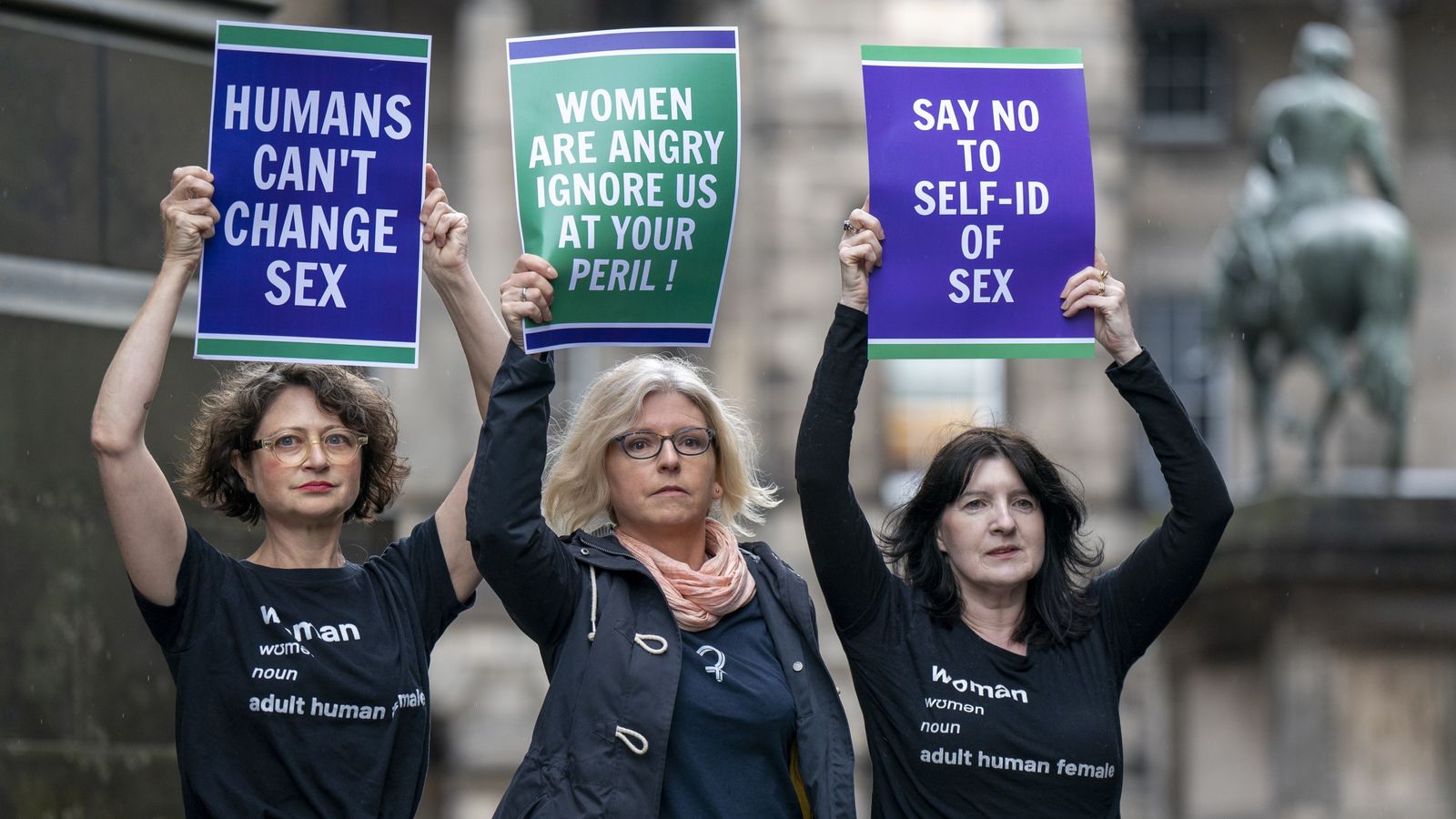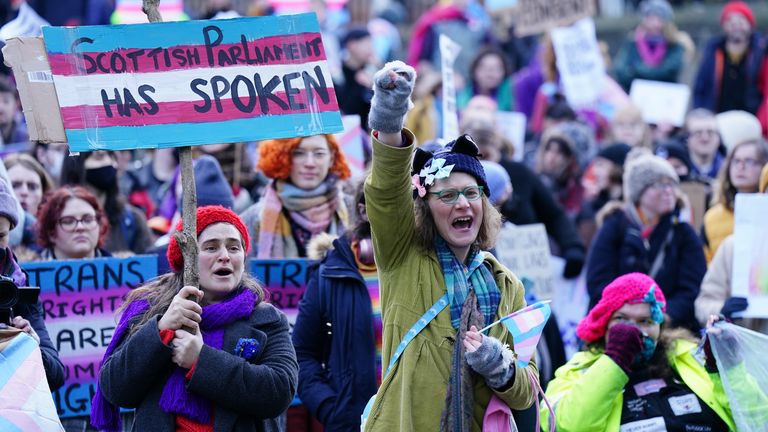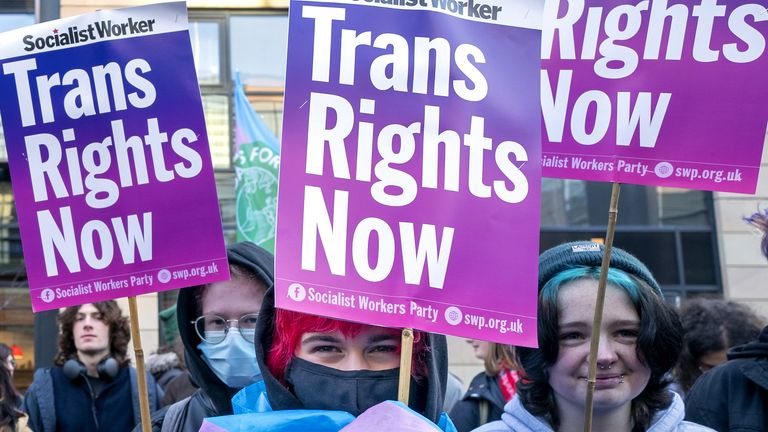Scotland’s highest civil court has ruled that the UK government acted lawfully in blocking Holyrood’s controversial gender reform bill.
Legislation making it easier for people to change their legally-recognised sex was passed by MSPs last December.
It then became a constitutional dispute in January when the UK government took the unprecedented step of using a Section 35 order to stop the bill from receiving royal assent and becoming law.
Scottish Secretary Alister Jack had argued the bill clashed with UK-wide equality laws and differing systems of gender recognition north and south of the border would create “significant complications”.
The Scottish government launched a legal challenge and a three-day hearing took place at the Court of Session in Edinburgh in September.
On Friday, Lady Haldane delivered her judgment, saying the UK government’s decision to block the gender reform bill from gaining royal assent was lawful.
The Scottish government has the right to appeal the case further through the Scottish courts, and ultimately to the Supreme Court in London.
Mr Jack welcomed the decision and said Scottish ministers “need to stop wasting taxpayers’ money” and instead focus on other issues that matter to people in Scotland, “such as growing the economy and cutting [NHS] waiting lists”.
Meghan Gallacher, deputy leader of the Scottish Conservatives, said: “This is a humiliating defeat for Humza Yousaf and the SNP, who have once again squandered taxpayers’ cash on a self-serving but doomed court case.
“Their reckless Gender Recognition Reform Bill is deeply unpopular with the Scottish public because its self-ID principle compromises the safety of women and girls – as the case of a double-rapist being sent to a female prison demonstrated.”
Read more:
Why is the bill controversial?
The Scottish Greens said it was a “devastating day for equality and democracy”.
Maggie Chapman, the party’s equality spokesperson, said: “It is a democratic outrage, crushing basic rights and equality for some of Scotland’s most marginalised people.”
She added: “It is horrible, it is heartbreaking and it is unjust.
“It makes a mockery of any vote or decision that we as parliamentarians take at Holyrood from now on, if the result is knowing that Westminster will veto anything they don’t like.
“Self-ID is normal and is used in countries around the world. What our parliament voted for was a small change that would have made a big difference to a vulnerable community. I hope the Scottish government will consider all options for appeal.”
The reform bill
The Gender Recognition Reform (Scotland) Bill was passed by MSPs just before Christmas last year.
It aims to simplify the process for trans people to change gender in the eyes of the law.
No diagnosis or medical reports would be required, and the period in which adult applicants need to have lived in their acquired gender would be cut to three months.
Teenagers aged 16 and 17 applying for a gender recognition certificate would have to live in their acquired gender for at least six months.
Critics have argued the proposals undermine women’s rights and single-sex spaces.
Colin Macfarlane, director of nations at LGBTQ+ charity Stonewall, said the organisation was “disappointed” with the ruling.
He added: “This unfortunately means more uncertainty for trans people in Scotland, who will now be waiting once again, to see whether they will be able to have their gender legally recognised through a process that is in line with leading nations like Ireland, Canada and New Zealand.
“Whatever happens next in discussions with the UK and Scottish governments on this matter, Stonewall will continue to press all administrations to make progress on LGBTQ+ rights in line with leading international practice.”



